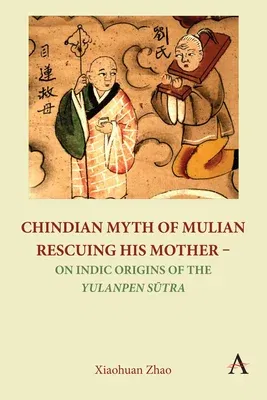This book addresses the thorny issue regarding the authenticity of the
Yulanpen Sūtra with a view to clearing up the centuries-long confusion
and controversy surrounding its translation and transmission in China.
The main objective of this study is thus to check and confirm the
authenticity of the Yulanpen Sūtra, which features Mulian adventuring
into the Preta realm to rescue his mother.
Traditionally attributed to the Indo-Scythian Dharmarakṣa (Ch. Zhu Fahu,
ca. 266-308) as the translator, the sūtra is now widely believed to have
been created by Chinese Buddhists to foster sinicisation and
transformation of Indian Buddhism on the grounds that there is no extant
Yulanpen Sūtra in Indic sources and that the sūtra stresses Confucian
filial piety and ancestor worship, amongst others. Through a critical
review of the major arguments prevailing in modern scholarship against
its authenticity and a close examination of textual and contextual
evidence concerning the Yulanpen Sūtra, this book demonstrates that
filial piety and ancestor worship are also deeply rooted in ancient
Indian culture and that the Mulian myth reflects the recurring motif of
'rescuing the hungry ghost of a sinful mother' in Indian mythology and
religious literature.
In so doing, this book sheds new light on the Indic origins of the
Yulanpen Sūtra and the Ghost Festival in general and of the Mulian
myth and the Mulian drama - the oldest Chinese ritual drama that has
been alive onstage for nearly one thousand years - in particular.

